Calls for Australia to do more six-months into Russia’s invasion of Ukraine
Australia should support Ukraine to open a proper embassy in Canberra, the federal Opposition says, amid calls to “tighten the net further” on Russia where possible.
National
Don't miss out on the headlines from National. Followed categories will be added to My News.
Australia should ensure Ukraine has a “permanent home” with a proper embassy in Canberra, as the opposition backs any moves to “tighten the net further” on Russia where possible.
Coalition foreign affairs spokesman Simon Birmingham has backed calls to grant Ukraine use of a plot of land in Canberra previously allocated to Russia, but recently taken back by Australia after Moscow failed to meet conditions on the lease.
The National Capital Authority formally kicked Russia off the half-developed site, described as an eye sore last week, prompting Australia’s Ambassador to Ukraine Vasyl Myroshnychenko to suggest the land be used for a Ukrainian embassy instead.
As Wednesday marks the six-month anniversary of the Russian invasion and 31st independence day of Ukraine, Mr Birmingham said Australia must continue to assist the war torn nation in any way possible.
“We should also ensure that the nation of Ukraine has a permanent home in Australia, with a proper embassy, not in a rented office as is currently the case,” he said.
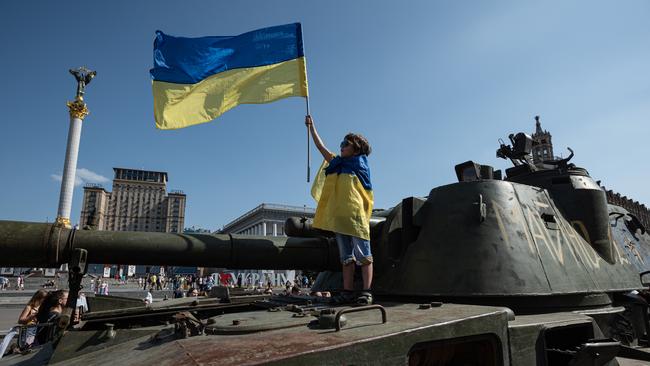
“Most fittingly, this should be built on the Canberra land where Russia’s right to build a new embassy was recently terminated.”
Mr Birmingham said Australia’s door should remain open to vulnerable Ukrainians seeking temporary or permanent resettlement, in addition to granting military aid as required.
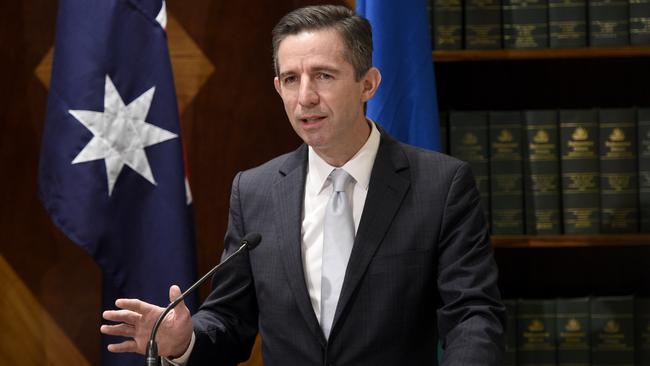
“Australia should remain at the forefront of military support to Ukraine, providing more weapons, defences, vehicles or other equipment that will help them to, ultimately, win this war,” he said.
“We should help those nations managing the bulk of the humanitarian crisis.”
Mr Birmingham said the “brutal” invasion of Ukraine had returned Europe to the type of bloody conflict many believed “belonged in history books”.
“Ukraine’s resistance against a foe with more than three times the population, four times the military personnel and nine times the economic might has been heroic,” he said.
“Six months on the world should not grow complacent of this war or acquiesce in any way to Russia.”
Mr Birmingham said to give up or lose focus would “not only be an inhumane abandonment of the Ukrainian people,” but a “desertion of principle” that would leave the world all weaker and more exposed to the whims of tyrants like President Putin.
UKRAINE’S CHILLING WARNING TO AUSTRALIA
Australian exporters can learn from Ukraine’s experience with Russia and should “get rid of overreliance” on China or forever risk economic ties being used as leverage on other issues, a top diplomat has warned.
Ukrainian Ambassador to Australia Vasyl Myroshnychenko said diversification and increasing local manufacturing were key to protecting national security interests, particularly where critical supply chains like food, energy and minerals were concerned.
Reflecting on the parallels between Australia and Ukraine, Mr Myroshnychenko told News Corp the two countries shared lessons in dealing with belligerent regional superpowers.
“If you rely on one market too much, there will be a day when that market will want to leverage it,” he said.
Mr Myroshnychenko said Ukraine had made a concerted effort to reduce its reliance on Russia in recent years, reducing exports from 30 per cent to five per cent.
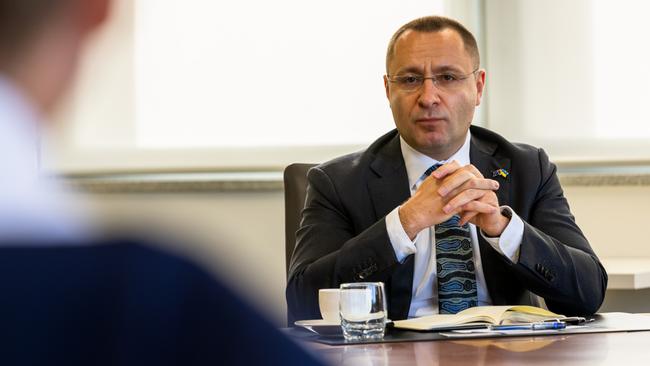
“We had to diversify, we learned the hard way. So I think it’s a good lesson for Australian exporters”.
He also said Australia could also look to process its rare minerals domestically, rather than export the raw material to China, further solidifying global overreliance on Beijing.
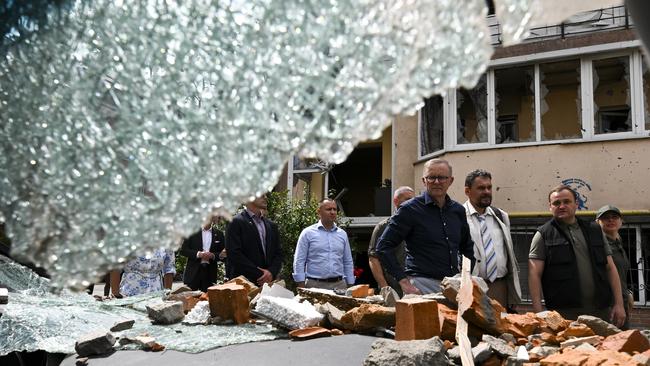
As Ukraine prepares to celebrate the 31st anniversary of its independence on Wednesday, Mr Myroshnychenko warned Russia’s ongoing illegal invasion would continue to impact global inflation and hurt the hip pockets of Australian households.
Russia’s blockading of ports used to export Ukrainian wheat and other grains has already caused a famine in the horn of Africa.
“Even though commodities like grain and coal selling for record prices might seem good for Australia in the short term, in the long term these supply demand issues are hurting inflation because all the economies are connected,” he said.
Mr Myroshnychenko said in addition to much-needed military aid, Australians could support Ukraine further by purchasing products and services from the war torn country.
“It doesn’t have to be physical supplies,” he said.
“If you need a graphic designer, or software developer … all of this can be purchased remotely and it’s a way to support Ukrainians.”
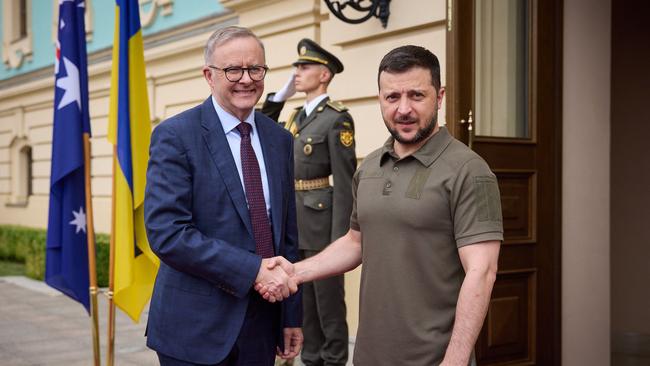
He also thanked the federal government for pausing all tariffs on Ukrainian goods to make it cheaper to import them to Australia.
Mr Myroshnychenko, who took up his posting in Australia in March only weeks after the Russian invasion of Ukraine, has been travelling the country raising awareness about his country’s plight.
He recalled being woken by his wife one night in Ukraine’s capital Kyiv as the Russian army advanced and quickly packing just two small suitcases for the family – including two children – and driving away from the city.
Mr Myroshnychenko has since returned to Ukraine twice, where his parents, brother and other extended family remain.





